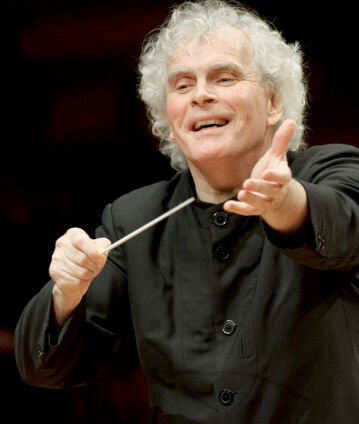Interview
Des musiciens des Berliner Philharmoniker parlent du cycle Brahms/Schumann Troisième concert du cycle Brahms/Schumann avec Simon Rattle

Ce concert de 2014, dans lequel Simon Rattle dirige les troisièmes symphonies de Johannes Brahms et Robert Schumann, prouve que le romantisme n’était pas que vagues songeries et respirait aussi la confiance. Parfois comparée à l’« Eroica » de Beethoven, l’œuvre de Brahms s’affirme puissante et optimiste, tandis que la « Rhénane » de Schumann montre le compositeur sous un jour inhabituellement souriant.
Berliner Philharmoniker
Sir Simon Rattle
© 2014 Berlin Phil Media GmbH
Interviews liées au concert
Artistes
Nos suggestions
- Simon Rattle dirige Beethoven et Mendelssohn à la Waldbühne
- Sir Simon Rattle dirige Schumann et Lachenmann
- Concert festif « Les 50 ans de la Philharmonie de Berlin »
- Beethoven et Mozart avec Simon Rattle et Mitsuko Uchida au Festival de Pâques
- Ouverture de la saison 2009 : Simon Rattle dirige la « Symphonie fantastique » de Berlioz
- Simon Rattle dirige Mozart et Haydn à Lucerne